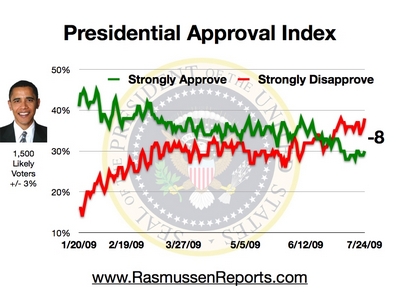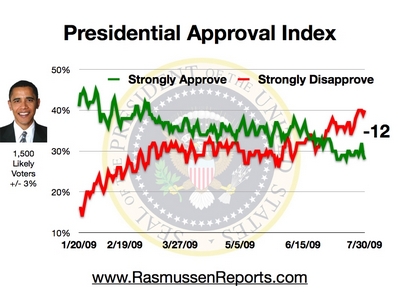Koko - While I agree that papers may get rejected, they tend to be accepted over time. I don't see this happening with the global warming skeptics though.
Koko - it has happened and it continues to happen. Remember this phrase, "The debate is over! There's no longer any debate in the scientific community about this!" byAl Gore? Also, for the sake of you becoming more informed on these issues in regards to peer review journals and books read this piece of analysis about a peer-reviewed publication of "The Skeptical Environmentalist" book and how it created a backlash from pro global warming crowd:
http://sciencepolicy.colorado.edu/p...rrison_peer_review_politics_and_pluralism.pdf
Again, I can't disagree with most of what you say. As for politics in action while it is possible it could happen, the simplest explanation suggests to me that it could be a case of sour grapes.
Koko - in some cases, politics heavily influence the decision.
Given all the training that you had, I am surprised that you would cite some sources that are not taken seriously by the majority of scientists.
Koko - again, remember the phrase by Al Gore and his constituents that the debate is over. Consider the fact that there is a lucrative field to get fundings for global warming studies. - As someone said in another thread, a university degree (even if it's in a sciencitally related field) does not necessarily turn people into skilled scientists.
Koko - sure unless they become a professional scientist or researcher in their field of specialty because of their knowledge, skill and application. It's no wonder I was accepted for a PhD study in Civil Engineering in the water resources and snow hydrology program along with a 3 year research assistantship deal (I've competed against several others for that) at Univ. of Maryland and work with a professor who graduated from MIT.
Since I do not know the whole story behind between the professor and the Ph.D professor, I can not comment on if it was due to politics or if it was for other reasons.
I have never claimed to be a scientist - in fact I mentioned in an earlier post that my training is that of a fine artist and graphic designer. So now that I have said I am not a scientist nor do I have much training, does this automatically disqualify from a thread like this one? Not necessarily.
Koko - And what disqualify me, then? You have implied that a few times almost in that regard in so many words.
A more important question that pertains to the majority of the posters on this thread is how to tell
if the science is sound or if it's questionable for those of us who are not trained in science. It likely pertains to Omaba as well.
I used to belong to a forum years ago which had a former scientist on it.
I
learned in that forum:
1.) A theory/claim is wrong until show beyond
reasonable doubt to be otherwise.
Keyword here is
reasonable doubt.
2.) A theory that goes against current thinking must be accompanied by proportional evidence.
It's not so different from "innocent until proven guilty" rule in law. If it weren't for that rule, then everything would be true. UFOS, black helicopters and Santa Claus (etc) would all be true. Uh, this clearly won't work.
So then who to believe? According to another
site a hallmark of a scientifically reliable site is that it represents consensus within the scientific community. Thus, scientific validity is ascertained not by evaluating a single web site, but by comparing information from several web sites.
Koko - remember the "800 page" resource link I provided that does exactly that? Pretty ironic for you say that in light of what happened here when discussing scientific validity. I've provided more than enough, peer-review and all. I think that pertains to papers and journals as well. This site is designed for students who do not have a great deal of scientific expertise.
Koko - yet the problem is that some scream for "Link!" or some other supporting document to your arguments. The second problem is trying to convey that very concept to those who are essentially science-illiterate. Either you do it or you don't and still be damned in either direction.
These are the questions to be asked: What do the experts say? Who is doing the research?
According to the site that I have cited there are six catergories for evaluating scientific work:
Valid Most scientists agree with the thesis, data and conclusions drawn from the paper.
IPCC's reports and articles in Nature comes to mind.
Speculation: The majority of scientists would agree with the paper's thesis despite the lack of strong exerimental evidence. Worm holes in space time for example. They're predicted by well established theory, but have never been observed.
Uninformed: The author is not an expert in the field and is reporting only a part of a larger story. Things that get left out in the paper is often due to ignorance rather than malice. A lot of student papers are like that. Personally, I think this applies to the media as well.
Misrepresstation: The author often if not always present a correct statement. It's either taken out of context or not applied correctly. Quite often, the author is trying to mislead the reader by omitting or ignoring evidence not represented in the paper but it's well known in the field.
Unfortunately, a lot of the climate skeptics are like that.
Invalid: Most scientists would disagree with the paper's thesis.
So then for people to properly evaulate sites, there is a method for evaluating the validity of these sites which is fairly general: compare the statements made on these sites with those made on known, reputable sites. If there is a fair degree of scientific consensus, then the facts stated on each of these sites should be reflected on other sites.
koko - uh, no. Again, science is not about consensus but the pursuit of truth. A scientific consensus by itself is not a scientific argument. You're falling into that trap thinking like that. This is what separate from me as a scientist to you who is not a scientist. We're looking for the truth and the facts, not a show of hands. That's called politics. You are dabbling yourself in this field called "consensus science" which is all about politics. Don't even go there. It is wielded like a club to go after those who do not agree. Hence my recent link I gave to you about the The Skeptical Environmentalist. What is relevant in science are the reproducible results. Not consensus. The greatest scientists in history broke with the consensus. Be wary of consensus when it comes to science because politics lurks in the background.






 it's not for me to say.
it's not for me to say.